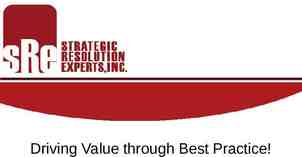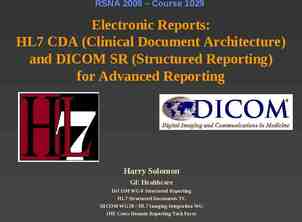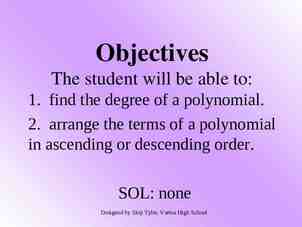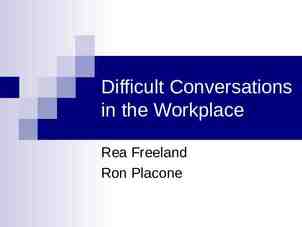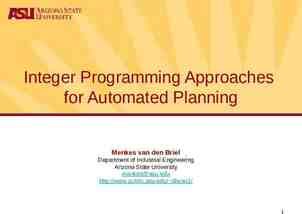Interviewing for Success Webinar CDR Deidre Washington-Jones, MPH
27 Slides3.16 MB

Interviewing for Success Webinar CDR Deidre Washington-Jones, MPH Division Director HRSA/Bureau of Primary Health Care/ Office of Southern Health Services/SCD

Interview Preparation Before the Interview During the Interview Interview Follow up

Poll Question 1 On average, how long does it take for you to prepare for an interview?

Do You Prepare for an Interview Effectively?

Organizations Want to Know Can you do the job? Why do you want the job? Are you a good fit? What key skills and qualities do you bring to the job?

Before the Interview Research the organization and specific program mission and vision program objectives/website Reread job announcement Review how your resume experience and interests align with job and specific objectives of program

Before the Interview Practice/Prepare Practice answering interview questions and practice your responses. Think of actual examples you can use to describe your skills. Prepare responses to common interview questions.

Before the Interview During an interview, you may encounter three main types of questions: traditional behavioral industry-specific

Traditional Questions Traditional interview questions focus on general information that you can answer directly. Some will be based on your application materials, so know your resume thoroughly in order to answer effectively. Use examples to illustrate your points and give the interviewer a sense of who you are as a person and potential employee. An example of a common interview questions is: Tell me about yourself. Research common interview questions online for your displine/industry.

Industry(Discipline)-Specific Questions Industry-specific interview questions test your knowledge and skills in your target industry. This is your opportunity to reveal your knowledge! Make sure you research common industry or discipline-specific questions online and by talking with professionals in the field. Be sure to review the job announcement and research the organization’s mission, vision, and purpose to guide your preparation.

Behavioral Questions Behavioral interview questions are based on the premise that past behavior predicts future performance. To prepare for behavioral questions, start by assessing your skills and abilities. Then, identify the skills the employer is most interested in.Think about examples from your past where you used these skills and abilities. When you answer a behavioral question, you will share a short story that shows a skill or ability in action. Your answers should be organized and illustrate your thought process(STAR Method).

STAR Method Interview Technique

STAR Method Interview Technique

STAR Method Interview Technique

Poll Question Poll 2: How long does it take for you to answer interview questions?

Before the Interview: How Long Should I Take to Answer Each Question? The right length for interview answers is 1 to 2.5 minutes The answers to factual questions should be the shortest. For instance, the answer to "Where did you get your Master's?" can be less than 30 seconds. When answering more complicated questions like "What was your favorite project?“ or behavioral based questions, you should take at least a minute and could utilize up to 2 or 2.5 minutes because you need to add details Don't go past 2 or 2.5 minutes Practice timing yourself!!!

Preparation: Night Before Interview Have the following items prepared: Multiple copies of your resume 3–4 professional references (separate from your resume) Notepad Pens A folder for your resume and any other documents

Preparation: Night Before Interview Read through your notes, resume, cover letter, job description, company or industry summaries one last time. Know the route you will take to the location and how much travel time you will need. Build in additional time to ensure you are not late. Make sure to dress professionally with Dress Blues or Whites Have the following items prepared(previous slide): Multiple copies of your resume 3–4 professional references (separate from your resume) Notepad Pens A folder for your resume Power poses(helps with confidence and anxiety)

Power Pose(do alone before interview) High Power Pose

Day of Interview Be on time! Arrive 10 to 15 minutes early. Bring the supplies you prepared the night before your interview. Turn off all mobile devices. Avoid any scents or jewelry that may be distracting to the employer. Discard any chewing gum or breath mints before your interview. When introducing yourself to the interviewer, make eye contact, shake hands Be aware of your body language and show that you are engaged and interested by sitting up straight and remaining attentive throughout the interview. Practice your power pose before going into the interview (see Ted Talk under resources)

During the Interview Listen carefully to the interviewer. Make sure you answer the question your interviewer is asking in its entirety. Write down questions if needed. Relate your skills, accomplishments, and objectives to the needs of the organization Provide specific examples when possible using the STAR Method. Focus on the positive aspects of your training and experience. Don’t ramble, remember to answer each question precisely, taking no longer than 2.5 minutes each question. Observe the people and office space to get a sense of the organization’s culture. If you do not have the interviewers’ contact information, request a business card from each so that you can send a thank you note to each interviewer. Be sure to get the names of each interviewer. Be sure to have questions prepared to ask the interviewers.

How long Do Interviews Last? Although it varies depending on industry and job, most interviews last between 45 minutes and one hour. This should provide sufficient time and flexibility from both sides to get to know one another.

Follow up After the Interview: Thank you Note The best time to send your thank you letter for a job interview is within the first 24 hours following the interview. Send a thank you note to each interviewer

Post the Interview Assess your interview performance To assess your own performance, write the questions you recall answering and how you answered them. Importantly, also include the things you didn't say that you wish you had. Write down anything you want to remember. Write down insights you gleaned about the office environment that you have further questions about, should you get a second interview, or things you want to remember about the interviewers.

10 Common Interview Mistakes to Avoid Dressing Inappropriately Arriving Late Not Having Paper and Pens Not Knowing Anything About the Job, Organization, or Program Not Paying Attention Not Completely Answering the Questions** Talking Too Much or Too Little Not Being Prepared to Answer Questions Badmouthing Past Employers Being Too Informal

Resources How to prepare for an executive level interviewhttps://www.indeed.com/career-advice/interviewing/executive-inter view#1 https://www.opm.gov/policy-data-oversight/senior-executive-servic e/executive-core-qualifications/ https://www.ted.com/talks/amy cuddy your body language may shape who you are? https://dcp.psc.gov/ccmis/PDF docs/sgpac.pd flanguage en (power pose) https://www.indeed.com/career-advice/interviewing/how-to-use-the -star-interview-response-technique http://views.washingtonpost.com/on-success/career-coach/2010/0 4/interview answers shouldnt be too long.html https://gogovernment.org/the-interview-process/ Participate in HSPAC’s Yearly Mock Interview Program: Contact Career Development Chair

Questions

